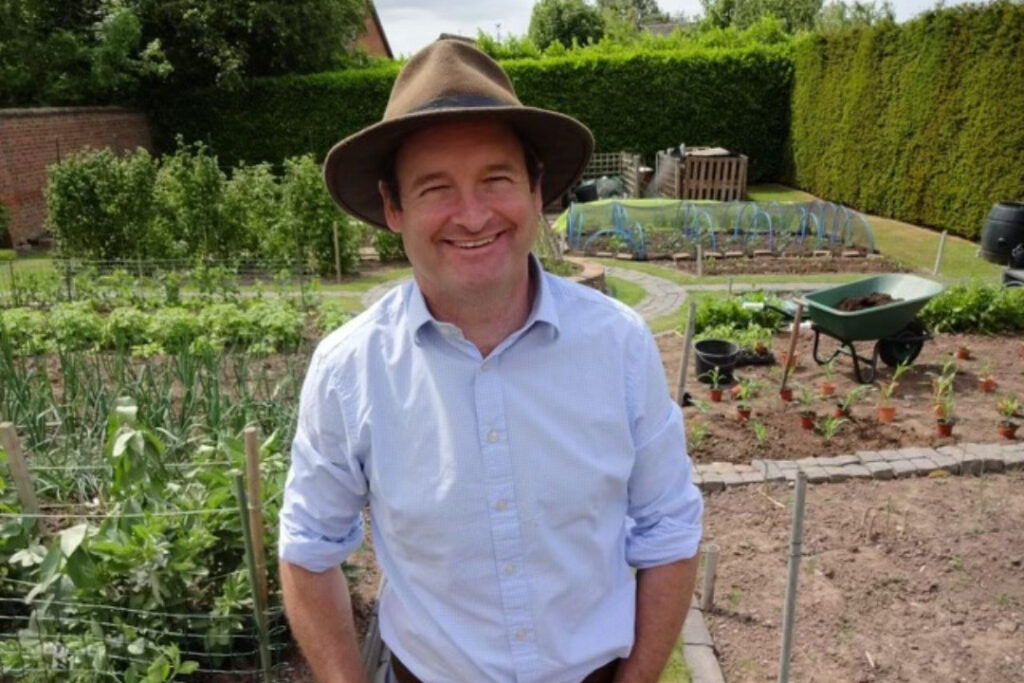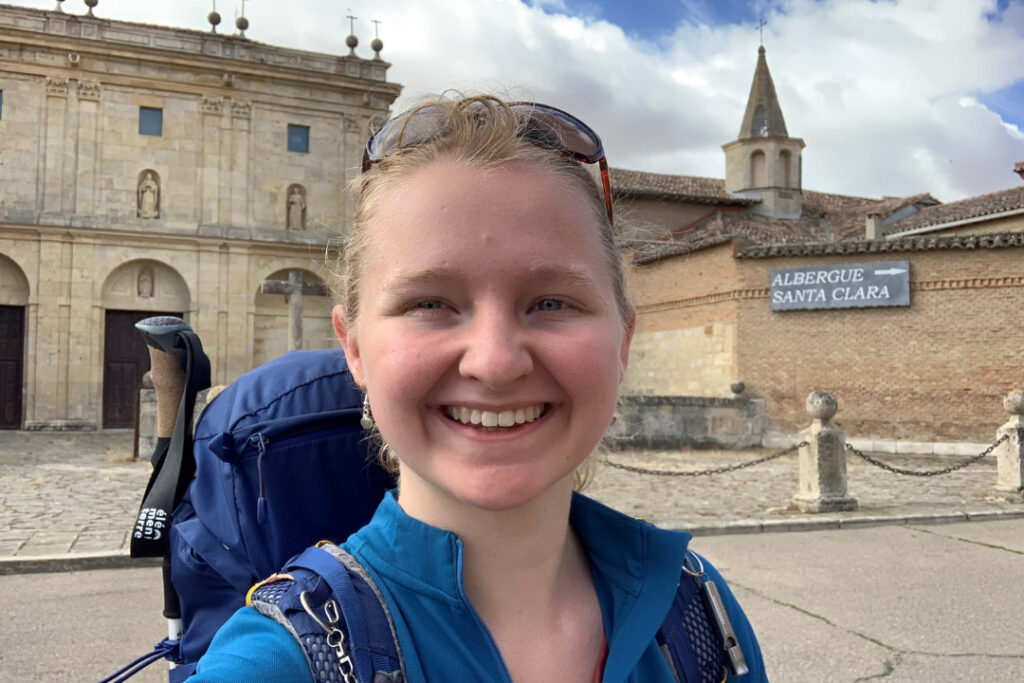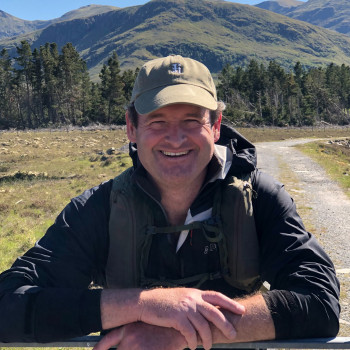
Hugh Strickland is a solicitor based in the Midlands who works on corporate finance projects, that is, the ownership and funding of businesses. At the 2023 Hearing Therapeutics Summit, he spoke about his experience of hearing loss and his hopes for future treatments to an audience of international hearing research scientists.
Here, Hugh now shares his story with RNID.
My deafness and tinnitus
I’m profoundly deaf. We have genetic hearing loss in the family. My father has it, as did his mother. Her father – my great grandfather – was also very deaf but he was in the Royal Artillery, so we don’t know how much of his loss was noise induced. Either way, we certainly had an early experience of deafness in the family. There is also a suggestion that his Scottish grandmother might have been deaf. Deafness has impacted uncles, aunts, cousins, and my 22-year-old daughter, Mary.
Our deafness has an ‘S’ shape – it includes a loss of the lower frequencies (usually around a 25% loss) but we hear fine at higher frequencies. This makes it easier for us to hear higher-pitched voices and harder to hear deeper-pitched voices. This curve drops with age, which means that higher frequencies become harder for us to hear over time – so I could cope without hearing aids until my early 20s and my deafness has not impacted my speech. My daughter Mary has a very similar hearing profile. She’s recently received a new set of hearing aids to replace her older ones, after a hearing test demonstrating a decline since 2018.
I lost the last of my hearing in my left ear in 2016, almost overnight. I am told I could have a cochlear implant – but so far, I’ve been able to cope with just one hearing aid. I’m hoping that clever scientists can develop a cure in time to regenerate enough hearing for me to use a hearing aid again. I worry that getting cochlear implant surgery would affect my residual hearing and prevent me from benefitting from treatments in the future.

I also suffer from tinnitus. For me, it has a constant and never-ending presence. It is like a low hum – more noticeable in my left ear and especially when I think about it. My tinnitus is exacerbated by certain things, such as stress, lack of sleep and too much caffeine (I suppose all of these are connected!). For some it can be cheese, chocolate, red wine, the quinine in your gin and tonic… fortunately, I am fine with those. Sometimes, the sound almost becomes like a clicking. When that happens, it’s usually linked to a headache or migraine, and possibly certain things in my diet.
This is my own – and my family’s – personal experience of deafness. I have been lucky to have had good enough hearing for most of my life. I am therefore keen to preserve and, if possible, enhance my ability to hear.
Challenges in treatments for hearing loss
Adaptive technology for people with hearing loss is fantastic. Hearing aids are amazing, and modern technology – for example, the closed caption facility in Microsoft Teams, and theatres that now offer captioning – makes a massive difference. Those are all vital – but wouldn’t it be amazing to develop a “cure” for hearing loss? And I am specifically putting that in “quote marks” as it means different things to different people. Some might prefer the word “solution”.
For me, returning to near-full hearing would be a dream but I think there are two other objectives I’d like to aim for in the meantime. Firstly, to stop further hearing loss in my right ear. I’d love to be reassured that it will not get any worse. Secondly, to regain some hearing in my left ear – at least enough for me to use a hearing aid again.
I know these things are coming. I follow some of the research that’s being done. There is a far higher profile around deafness and hearing loss in the media than there used to be (in part due to the work of RNID), but even so, more promotion of the coming science, of the latest research, and creating a buzz around it would lead to even greater awareness and support, particularly from policy makers – and, most importantly, health commissioners and funders.
What I’d like to see
It was mentioned multiple times by other speakers at the Hearing Therapeutics Summit, where I originally gave this talk, that one of the challenges in developing treatments for hearing loss is figuring out a delivery method that can get large enough quantities of a drug to the inside of the inner ear. There is a lot of research happening into the best ways to do this, and into making sure that enough of the drug stays in place long enough to have the desired effect.
For me, any future treatments for hearing loss would need to work both in terms of the drug delivery, and of meeting my needs. For instance, I’d find a treatment based on a daily pill acceptable, but a monthly or more frequent injection likely wouldn’t be, unless it was a self-injection like insulin for diabetes, or a patch. A doctor or nurse administered injection quarterly or annually might work, too.
A future treatment would meet my needs if it can fill the gaps – the places where a hearing aid doesn’t do the job. For example, at night when I am not wearing my hearing aid, or during outdoor activities, like gardening, swimming, and visits to the beach – or in noisy environments. Again, the technology is good, but following a family discussion at the kitchen table with everyone speaking at once is exhausting!
The other thing I hope for in a treatment, and this is a real key for me, is preventing the decline of hearing loss. Mary’s recent test shows that her hearing has noticeably declined over the last four years – and she is only 22 years old now. It would be a dream to stop her hearing loss from getting any worse. And who knows if, in time, she will have children of her own. Can we protect them?
